Thursdays (1)
Poliziotteschi: Shoot First, Die Later
Programmed by Ivan Albertson
Essay by Ivan Albertson
The Italian poliziotteschi emerged as one of the most exciting subgenres of the 1970s. The films spun the tropes of American cop thrillers and French noir into a uniquely Italian brew replete with garish scenery-chewing, exhilarating car chases and hypnotic scores from the likes of Ennio Morricone and Stelvio Cipriani. Despite many common elements, the grouping offers a range of approaches (sometimes within a single film). Some are police procedurals; some are immersions into criminality. Some are sober political dramas; others veer into gialli territory. Many are reactionary bordering on fascist (it's ok to enjoy them!), while others are liberal at their core.
Any single film could be taken as a standard revenge thriller or violent cop picture, but together they convey the widespread social unrest and disillusionment in late '60s and '70s Italy. The era, known as the "years of lead," was defined by a series of bombings, kidnappings and assassinations by both left- and right-wing militant groups, which adds another dimension to the films' vigilance. Though few of the films reference the radical causes of the day, they depict people taking action after the system has failed them, whether for justice or anarchy.
At the same time, it is the extremity behind the veneer of realism that gives the poliziotteschi their unique power. The criminals aren’t merely amoral; they’re gleefully immoral. Likewise, the lone man in pursuit of them never wavers from his ethos of “by any means necessary.” There’s a gender burlesque at play: men are either raging bulls or namby-pambies content to let hoodlums run wild in the streets. The scantily-clad ladies are so perfunctory that it feels like a stretch to call (most of) the films misogynistic, for that would suggest they care about women at all. The merits of such characterization will depend on the viewer, but to my mind this hysterical mode of address achieves an intensity that nuance would only temper. (It is bracing, however, when rape scenes occur, for they are tangible and upsetting in a way the other violence is not. Although they're not really defensible, they raise important questions about which kinds of screen violence are acceptable, even glorious, and which are sickening.)
In a similar vein, the car chases, often shot guerrilla-style, achieve an astonishing degree of recklessness that heavily-insured modern directors can only envy. It’s troubling but undeniably thrilling to witness lives being risked solely in the name of spectacle. Each director without exception brings a controlled chaos to the action that’s marvelous to behold. Once again, this disinterest in moderation is the genre’s chief asset. It frees the films from the trappings of representing the real world, allowing them to fully embrace absurdity. The dubbing, whether in Italian or English (most of the films will be presented in English) further adds to the effect, producing a delightful dissonance between sound and image.
Departing from reality, poliziotteschi work as fantasies of righteous violence. When they cross the line into sheer brutality, they're pungent enough to serve as indictments of the behavior depicted. Maurizio Merli's cop in Assault with a Deadly Weapons so little resembles someone we want to be that his flagrant abuses of power appear grotesque, much like the killer he's chasing. It’s a testament to the direction that despite dealing in binaries, there’s little effort to portray its leads as heroes, allowing for a range of audience reactions. And when the execution does show a heavy hand (I'm thinking of Enzo Castellari treating Franco Nero’s mugging victim in Street Law like a Christ figure), the effect is too silly to bog down the film. Such are the lines that poliziotteschi blur: reality and fantasy, vigilance and brutality, and solemnity and absurdity. I wouldn’t want them any other way.
2015-04-02 @ 7:00 PM
Investigation of a Citizen Above Suspicion
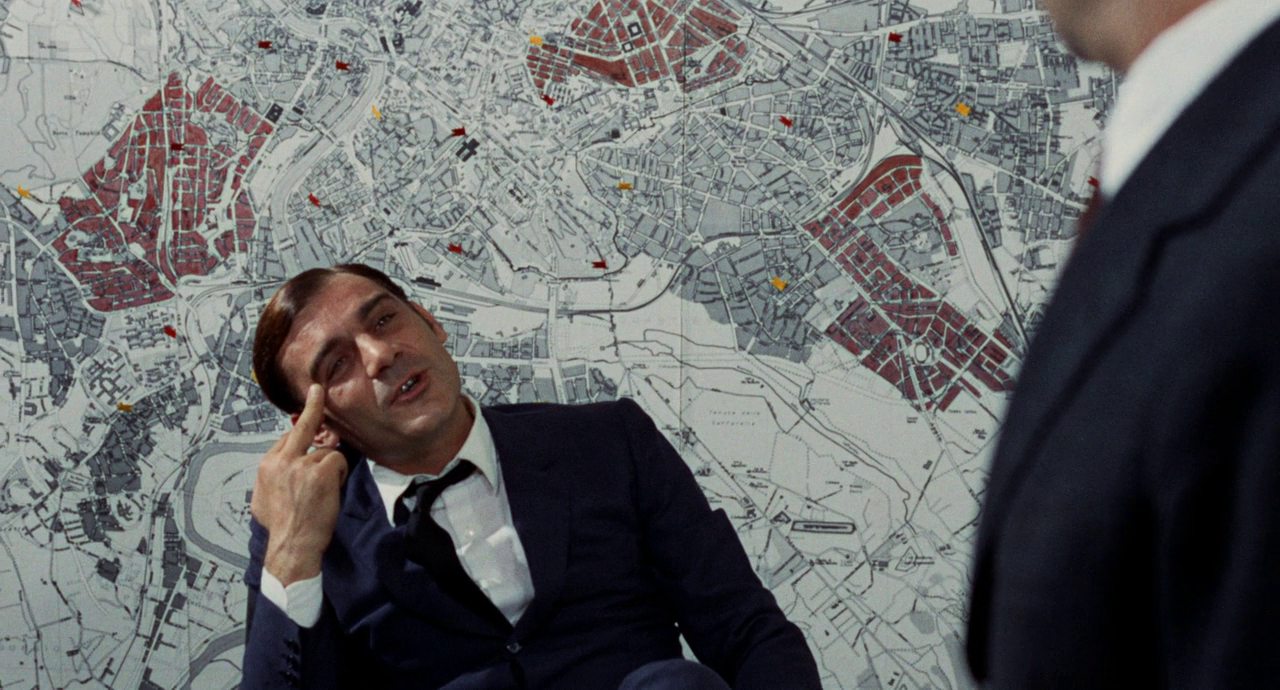
(Elio Petri, 1970) · A homicide chief (Gian Maria Volonté) brazenly murders his mistress, deliberately planting evidence to implicate himself. He finds, however, that nobody is willing to believe he did it. An incisive satire of police corruption, this predates the poliziotteschi trend but paints the political context in which it developed. Though different in tone and style, it shares a complete disillusionment with the forces of government. Volonté is mesmerizing.
runtime: 115 min format: 35mm
2015-04-09 @ 7:00 PM
No Way Out

(Duccio Tessari, 1973) · Is there anyone you’d rather see playing a trenchcoat-wearing hitman than Alain Delon? Delon is Tony Arzenta, a professional killer working for the mob who wants to retire. We all know how that goes: the boys blow up Arzenta’s wife and kid by mistake and, as the assailants soon realize, that’s a hell of a mistake. No Way Out is a true masterpiece of the genre, with a bold visual style, extremely reckless car chases and Gianni Ferrio’s smooth funk.
runtime: 90 min format: 35mm
2015-04-16 @ 7:00 PM
Confessions of a Police Captain
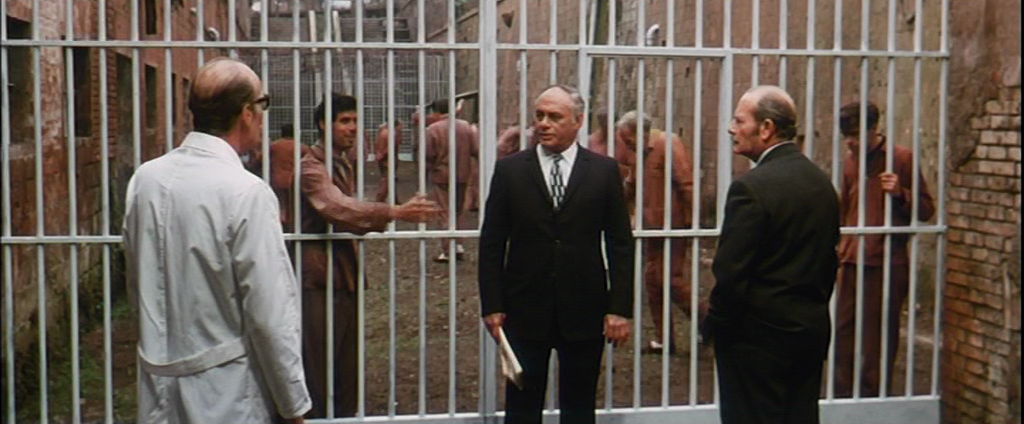
(Damiano Damiani, 1971) · Franco Nero and Martin Balsam star as Palermo men of the law with similar ideals but different principles. Young D.A. Nero has faith in the justice system to punish criminals, while hardened captain Balsam believes extralegal methods are necessary. This pungent film gives equal consideration to both perspectives and is all the more cynical for it, showing the futility of good intentions in a city of organized crime and ingrained corruption.
runtime: 101 min format: 35mm
2015-04-23 @ 7:00 PM
High Crime

(Enzo Castellari, 1973) · This stylish thriller established the rebellious, trigger-happy cop as the genre’s most archetypal character. Franco Nero is the ruthless Vice Commissioner Belli trying to single-handedly topple a European drug ring while facing resistance from his superiors. Castellari (the original Inglorious Bastards) keeps the plot shifting while cramming in as many chases and gruesome deaths as possible. With a jaunty funk score by the De Angelis brothers.
runtime: 100 min format: 35mm
2015-04-30 @ 7:00 PM
Blood in the Streets
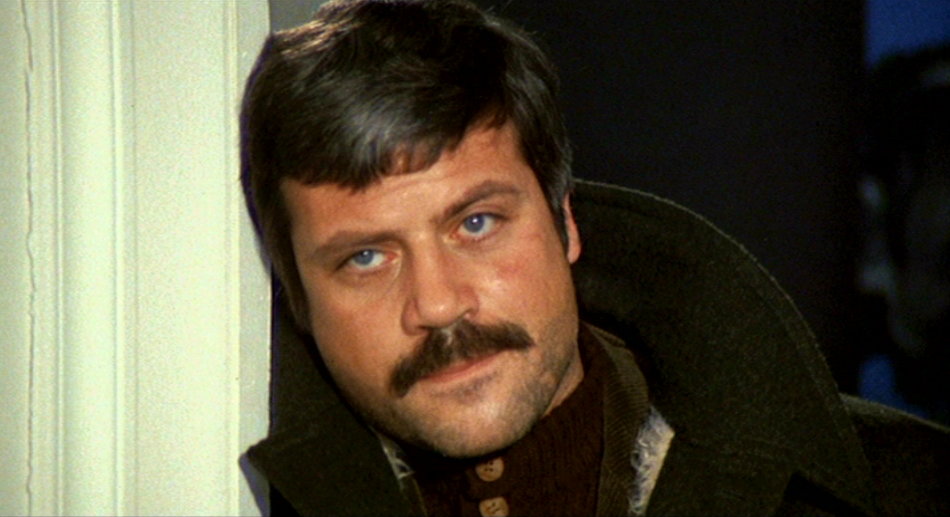
(Sergio Sollima, 1973) · “Makes Death Wish look like wishful thinking!” read the unbeatable tagline. When a prison warden's wife is kidnapped in exchange for the release of an inmate (Fabio Testi), the warden (Oliver Reed) kidnaps him himself to ensure her safety. More character-driven than most poliziotteschi, the film depicts the bond that forms between the two when they discover a common enemy. Reed’s drunken scowl is nicely complemented by Testi’s handsome charm.
runtime: 111 min format: 16mm
2015-05-07 @ 7:00 PM
Almost Human
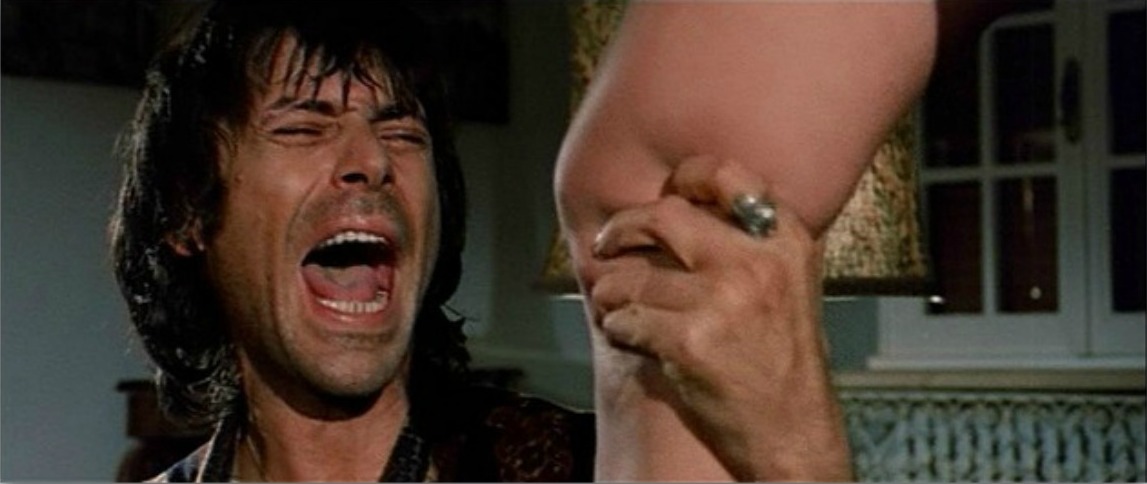
(Umberto Lenzi, 1974) · Lenzi's sleaziest and arguably best film was billed as “an experience in psycho-sadism you will never forget.” No kidding. Almost Human is a headlong immersion into the psyche of the last person you'd ever want to cross paths with, indelibly played by Tomas Milian. He has no qualms about killing or betraying anyone on a whim, especially after kidnapping a rich man's daughter. Squirming disgust of man pairs with true beauty in scene and theme music.
runtime: 99 min format: 35mm
2015-05-14 @ 7:00 PM
Street Law
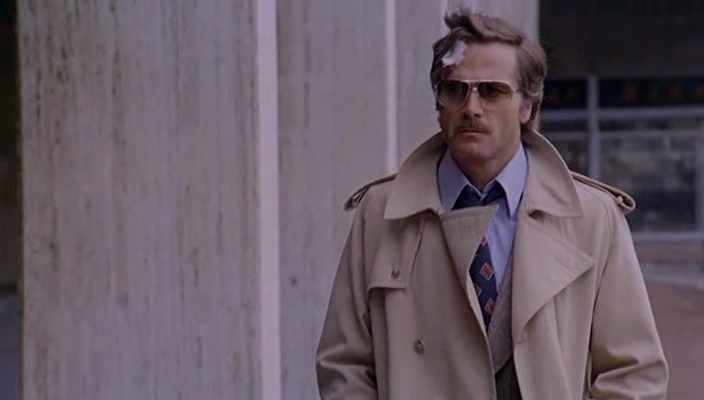
(Enzo Castellari, 1974) · The tagline reads, “He’s back blasting death and destruction,” which gives you a sense of the film’s amped-up violence. Franco Nero is an engineer who decides to take the law into his own hands after getting mugged during a bank robbery. He teams up with a petty thief to track down the assailants and spring the cops into action. Castellari delivers a kinetic, hugely entertaining fantasy of citizen empowerment filled with perilous stunt work.
runtime: 105 min format: 35mm
2015-05-21 @ 7:00 PM
Kidnapped
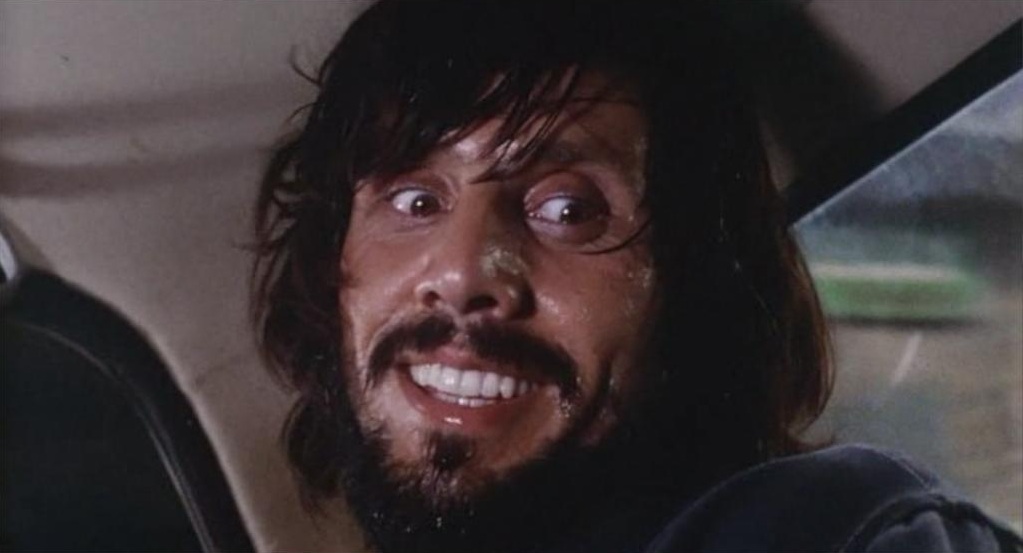
(Mario Bava, 1974) · After a breathless opening robbery and chase sequence, Kidnapped confines the action to a moving car for most of its remainder. Trading his usual gel-lit horror for a more realistic pressure cooker atmosphere, Bava masterfully ratchets up tension as three rabid dogs and their captives must endure each other’s company on the road to Naples. This nihilistic real-time exercise went unfinished until after his death, but it stands among his best work.
runtime: 96 min format: Blu-Ray
2015-05-28 @ 7:00 PM
What Have They Done To Your Daughters?
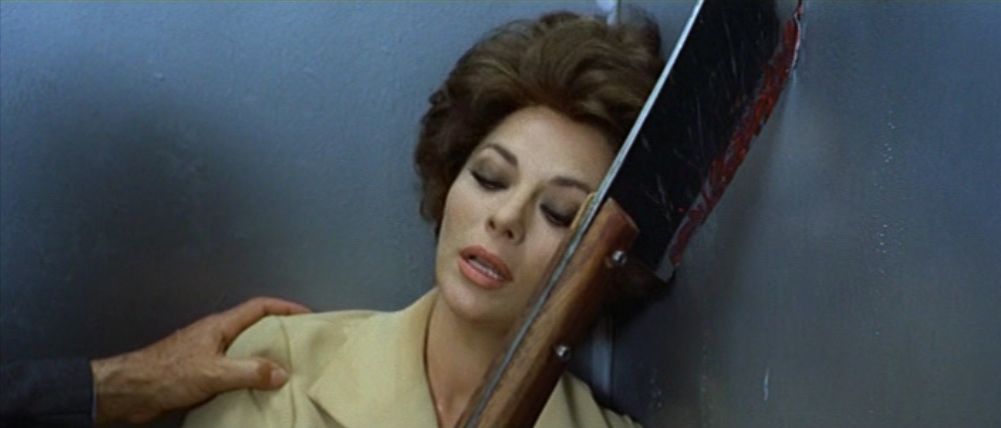
(Massimo Dallamano, 1974) · Adding a healthy dose of giallo to the poliziottescho, this second entry in Dallamano's "schoolgirls in peril" trilogy is also his bleakest. When a girl is found hanged, clues lead police to a teenage prostitution ring. But who done this to your daughters? And what about that mysterious leather-clad motorcyclist who keeps leaving bodies in his wake? Dallamano's images bear the elegance expected of Leone's former cinematographer.
runtime: 96 min format: 35mm
2015-06-04 @ 7:00 PM
Assault With A Deadly Weapon
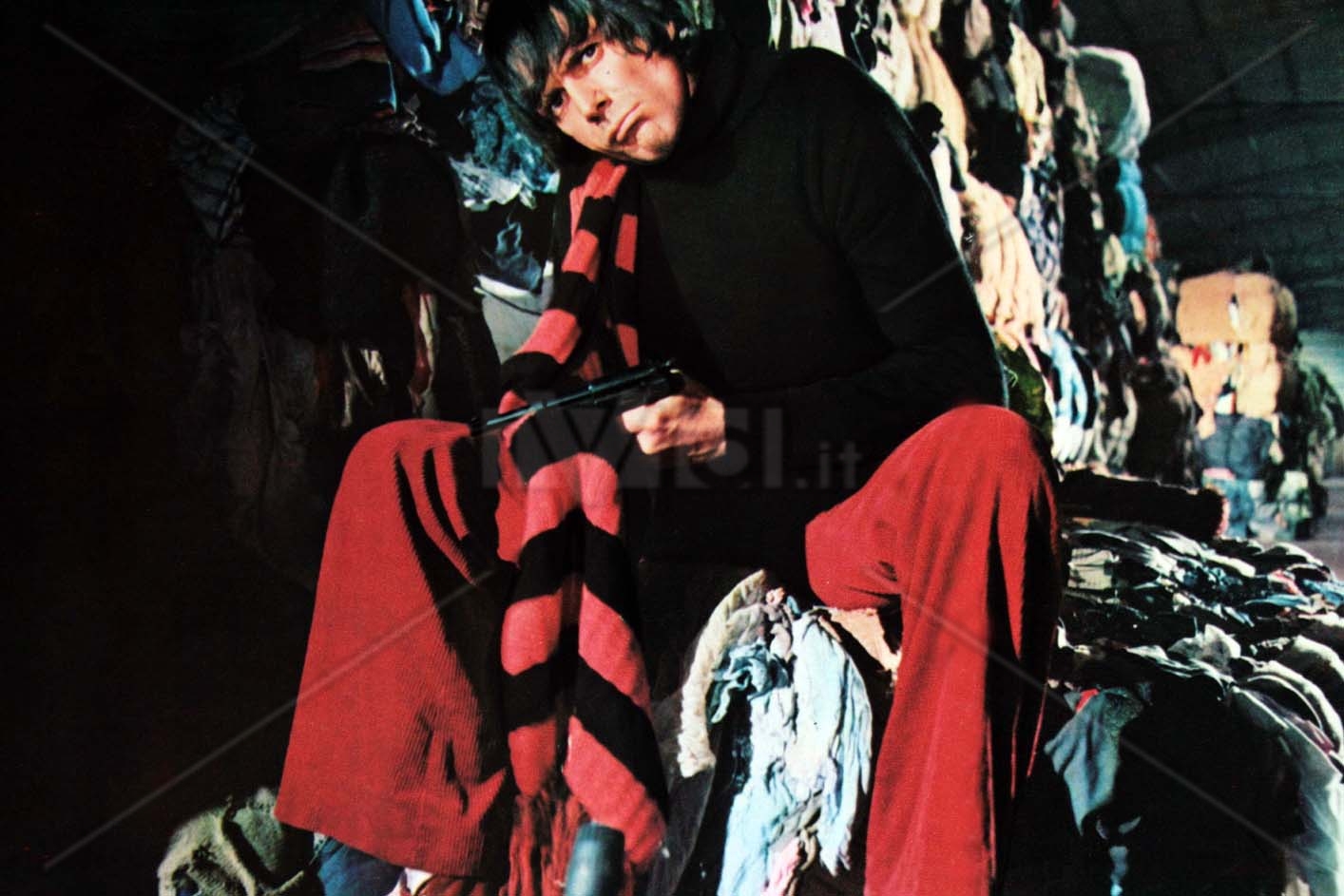
(Umberto Lenzi, 1976) · This American cut of Rome Armed to the Teeth is as wild, exhilarating and politically incorrect as they come. Ron Burgundy ringer Inspector Tanzi (Maurizio Merli) is hellbent on catching a machine gun-wielding, hunchbacked psycho (Tomas Milian) and will slap anyone to extract information. Not content to make just another violent cop movie, Lenzi and writer Dardano Sacchetti push it further off the deep end and into the realm of the absurd. Print provided courtesy of the American Genre Film Archive.
runtime: 95 min format: 35mm



